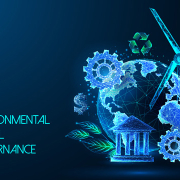Green Revolution: Energy Management Practices For Solar Power Generation

In the current global trend towards a zero-carbon future, solar power generation is recognized as a vital engine propelling the green technology revolution. However, relying on solar power is not sufficient; it requires the adoption of optimal energy management practices to promote more efficient, sustainable, and environmentally friendly energy production.
Integration of Smart Technology
To achieve management of solar power generation, the application of smart technology is indispensable. Advanced sensors and data analytics technologies should be integrated into the monitoring systems of solar sites, enabling real-time monitoring and predictive maintenance. This not only enhances energy production efficiency but also reduces unnecessary losses.
Optimizing Energy Management Systems
Solar power generation exhibits temporal variations due to day-night cycles and weather changes, making the establishment of efficient energy storage systems crucial. Adopting modern storage technologies contributes to stabilizing energy supply and allows for energy release during peak demand periods, addressing the fluctuations in energy production.
Implementing smart energy distribution is another step towards optimal management. This involves dynamically adjusting the transmission of electricity to ensure that energy is prioritized for the areas or users with the highest demand. Such a system makes energy more flexible, adapting better to changes in demand and improving overall energy utilization efficiency.
Enhancing Safety and Reliability
Energy waste has always been a significant challenge in sustainable energy development. Through regular energy audits and monitoring, solar power sites can identify and reduce unnecessary energy waste. This may include optimizing equipment efficiency, improving energy system configurations, and promoting employee awareness of energy conservation.
Sustainable operation of solar power sites must emphasize safety and reliability. Regular equipment maintenance reduces failure rates and enhances reliability. Additionally, establishing comprehensive contingency plans helps address potential unforeseen circumstances, ensuring the continuous operation of the system.
Conclusion
The green technology revolution demands our full commitment, and optimal energy management practices for solar power generation are a crucial component in achieving this goal. By integrating smart technology, optimizing energy storage systems, implementing smart energy distribution, continuously reducing energy waste, and enhancing safety and reliability, we can build a more efficient, sustainable, and eco-friendly solar power generation system. This not only aligns with the values of ESG investments but also contributes to a brighter future for our planet.





